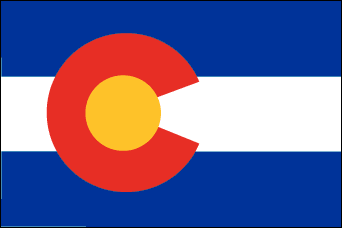DENVER — By 2030, the Governor estimates Colorado will need 27,500 chargers to fuel the 940,000 electric vehicles he wants on the road by that time. But gasoline retailers fear if utility companies get their way they will monopolize the market.
Xcel Energy got government approval in 2020 to build chargers and promised to put them in six locations, but has only constructed one and it is not yet operational. Recently Xcel filed a plan with the Colorado Public Utilities Commission to build another 160 at a cost of $145 million.
The utility company maintains the private sector can't afford the cost of building and maintaining an EV network and can't meet the needs of low income and rural areas. Gasoline retailers counter that utility companies will only build based on the estimated rate of return. They also believe no one wants to spend an hour charging a vehicle without having access to snacks, beverages, a restroom, and other amenities convenience stores and gas stations provide.

Xcel had to change course after lobbyists for the private sector yelled bloody murder. The corporation has submitted an alternate plan in which it would spend $137 million on chargers but would not own them, instead offering rebates to buyers and investing in the grid to support the new network.
At stake is a share in the $400 million in state and $75 million in federal funds the state intends to invest in the system. Altogether the estimated cost of the new system would be $850 million. It would include 25,000 public Level 2 chargers, which can provide a 12-to-80-mile charge in an hour, and 2,500 Level 2 chargers powering a vehicle at 20 miles a minute.
Some private companies already have charging stations in operation, the lobbyists pointed out.
Kum & Go, for instance, has had four chargers up and running since 2021. Gloss Auto Wash recently put in a super charger at its location in Boulder. Altogether there are now 1,500 privately owned chargers in the state.
Since the private sector has already spent the bulk of the money on chargers that are working, Xcel and other utilities should not control the market, the retailers say. If they do, private companies will have no future incentive to invest because they will have to compete against utilities funded by the government and their own customers. They only will build chargers when and if needed to make more profit.
It also is unfair to their customers, retailers maintain, because not every driver will have an EV vehicle, yet they still will have to help shoulder the cost of the network. Under Xcel's alternate plan the company still would try to recover the cost from consumers.
Xcel's broader plan is part of a $440 million transportation electrification project to be paid for by all its customers and includes programs to promote EV sales, installation of home chargers, and electrifying commercial fleets.
Anne Smart, a charger manufacturer's representative believes it likely will take "a combination of state, federal and utility funding and private sector investment to achieve the level of investment needed."
As to the alternate proposal Xcel has submitted to the state, "We still want this to be a marketplace driven on private investment," said Ryan McKinnon, spokesman for Charge Ahead Partnership, a lobbying group for retailers, including convenience stores and gasoline stations.
"But Xcel issuing rebates to third parties is a better use of money than Xcel paying itself for charging stations it wouldn't actually build."
DENVER — When gasoline prices hit $4 a gallon last summer industry experts cited a number of national and international reasons, but often neglected is the state's popularity as a tourist destination, especially for Texas residents.
Texans love to go to Colorado to get out of the heat, but this year the heat down there was so extraordinary it led to an even larger wave of Texans headed here. After all, when you are suffering from 110-degree temperatures, the 90s seem cool.
Colorado gasoline prices were about sixteen cents higher than the national average, the highest since spiking in February, which was due to the shutdown of the state's only refinery.
"People are coming in and going out," said a AAA analyst. "Airlines are at full capacity, rental cars are scarce, and gasoline sales are at an all-time high for this time of year."
Even if you work for a gas station, it doesn't help. "I drive a small car and it's been costing me about $50 to fill up," said Danielle, a service station manager.
FORT COLLINS — A convenience store clerk here was arrested after allegedly selling Fentenyl to a 24-year-old woman who died.
Andrea Branco was charged with unlawful distribution resulting in death and possession of a controlled substance. The crimes carry a total of 32 years in prison. She was being held in lieu of posting a $500,000 bond.
WESTMINSTER — Circle K Stores is being sued by a 75-year-old former employee who said she was fired after briefly grabbing the arm of a robber, violating the store's "Don't Chase or Confront" policy.
Mary Ann Moreno had worked there for eighteen years when the robber entered holding a knife and demanding free cigarettes.
Moreno said she told him she would be fired if she did that. He walked away, but returned, stepped around her, and filched a pack. She said she grabbed his arm, just to put distance between them, but then backed away.
"I really did not think I would get fired. I didn't chase him or argue with him."
A few days later she was fired. The suit is pending in U.S. District Court.
Originally published in the October 2023 issue of the O&A Marketing News.
© KAL Publications Inc. 2023
